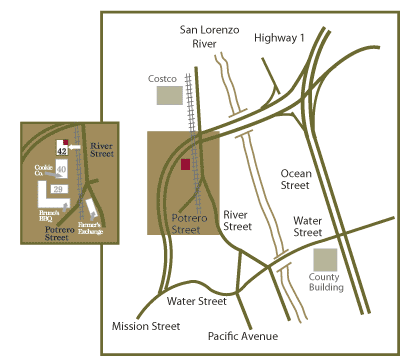Module 2
Cervico-thoracic Spine and Thorax, Shoulder Girdle and Tempero-Mandibular Joint
March 28, 2015
9:00 a.m.-6:00 p.m. (16 CEUs pending)
at 200 7th Ave., Santa Cruz CA
Day 1: Cervico-thoracic spine and thorax.
-
Clinical anatomy and patho-anatomy and relationships to AOM jing-luo
-
The degenerative cascade in the spine: eastern and western
Diagnostic priorities: identifying/ruling out
-
Urgent/serious medical conditions: stenosis, infection, fracture, tumor, radiculopathy
-
Contributing factors
- Motion dysfunctions
-
AOM meridians and patterns
History-taking for cervico-thoracic spine and thorax: key diagnostic questions.
Physical exam of the cervico-thoracic spine and thorax.
-
Surface anatomy, inspection and palpation
-
Active range-of-motion: measurements, diagnostic significance
-
Upper motor neuron and upper extremity reflex, sensory, and motor exams
-
Documenting normal and abnormal findings
Diagnosis, pattern identification and treatment planning for cervico-thoracic spine and thorax.
-
Sprains/strains, postural and motion dysfunctions, and myofascial pain
- Occipital neuralgia and cervicogenic/tension headaches
-
Disc injuries, degeneration/spondylosis, radiculopathy, and central stenosis
-
Intercostal sprains/strains
-
Brachial plexopathies and thoracic outlet syndrome
Day 2: Shoulder Girdle and Tempero-Mandibular Joint.
Shoulder girdle clinical anatomy and patho-anatomy and relationships to AOM jing-luo for the acromio-clavicular, gleno-humeral, scapulo-humeral, and sterno-costal joints
Diagnostic priorities: identifying/ruling out
-
Urgent/serious conditions: tumor, infection, fracture, tears, dislocations
-
Joint hypermobility
-
Contributing factors
-
AOM meridians and patterns
History-taking for shoulder girdle: key diagnostic questions.
Physical exam of the shoulder girdle.
-
Surface anatomy, inspection, and palpation
-
Active range-of-motion: measurements and diagnostic significance
-
Passive range-of-motion, joint play and end-feel
-
Strength testing
Diagnosis, pattern identification and treatment for shoulder girdle: joint stabilization acupuncture, manual and exercise therapies, postural correction and taping techniques.
-
Anterior and inferior gleno-humeral hypermobility and DJD
-
Acromio-clavicular hypermobility and DJD
-
Sterno-costal hypermobility
-
Scapulo-humeral motion dysfunction
-
Capsulitis, adhesive and non-adhesive
-
Rotator cuff tendonitis/tendonosus, impingement, and bursitis
Tempero-Mandibular Joint: Anatomy/patho-anatomy, and relationships to AOM jing-luo; history; physical exam; diagnosis; treatment with manual therapies and electro-acupuncture.

